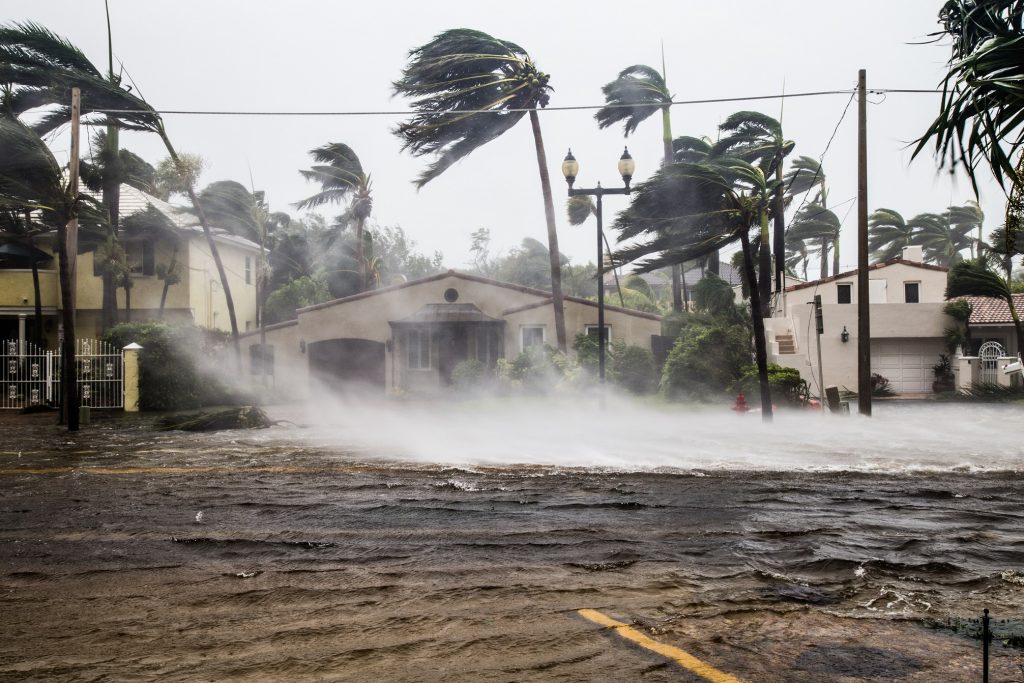
According to the National Oceanic and Atmospheric Administration, there is a 60% chance of an “above-normal” hurricane season in the Atlantic this year. Hurricanes that start near the Caribbean and Mexico can inevitably make their way to the Gulf of Mexico, hitting the Texas coast.
When living near the Gulf Coast during hurricane season, it’s important to understand what type of water-related emergencies can happen in your home.
Protect your water supply
High winds and heavy storms can lead to structural damage to plumbing. Gas lines can rupture and water pipes can break, excess water can overflow your drainage systems, sewer systems may flood and flooding can contaminate the water supply. As soon as landfall is imminent or evacuation notices are issued during a hurricane warning, you can protect your water supply and minimize property damage by following these guidelines:
- Turn off your hot water heater. Your plumbing system does not need the added stress of heating water. Some hot water heaters may be damaged if the water supply is turned off for an extended period of time. For electrical water heaters, switch off the electrical circuit breakers. For gas water heaters, turn the pilot light off and shut off the gas supply.
- Shut off your water meter at the cutoff valve, but if you do not have a customer valve installed yet then shut off your water at the meter. This will help minimize damage to your home’s interior, should a pipe burst inside your home, and prevent contaminated water from getting into your plumbing system. The valve is normally under the water faucet outside, 18 inches below the ground and two feet from the house. It will usually be in line with your water meter located near the edge of your property line near the street. If you do not have your own cutoff valve installed, it’s easy to install your own, or have a plumber install. Having your own cutoff valve will be easier to operate than the meter shut off valve.
- Turn any pool pumps off, remove the hoses and protect them. Any flooding could cause the pool to float and lift out of the ground.
- Fill your bathtub with water. This water should only be used for bathing and not for drinking.
- Fill your refrigerator in the free spaces with frozen bottles of water and turn your refrigerator and freezer to the coldest settings. This will help keep the inside of your refrigerator cold longer in case you lose electricity.
- Piles of tree limbs and other debris should be kept away from hydrants, water meters, manhole covers and other exposed utility lines because they can damage plumbing pipes.
- Minimize use of water. Prevent the risk of raw wastewater to overflow in some areas. Avoid excessive flushing of toilets, do not wash laundry, do not run the dishwasher and do not run water continuously for bathing or washing dishes.
Prepare for possible service disruptions
During and after a hurricane, there may be leaks causing low pressure or power outages preventing our pumps from moving water through the system. Before the storm, purchase bottled water or store tap water in clean, non-corrosive, tightly covered containers in a cool, dark location. Water can be safely stored in this manner for up to six months. Ensure at least one gallon per person per day for drinking and hygiene purposes. Consider storing a two-week supply of water for each member of your family.
Look for updates from your service provider
Natural disasters, such as a hurricane, can cause an interruption in service. Heavy rains that result from a hurricane can also increase run-off and enter drinking water sources. Should one of these events happen, there’s an increased risk of contaminants entering the drinking water treatment and distribution system, and we may issue a boil water notice.
A boil water notice advises residents to boil tap water before consuming it. A notice is in effect until lab results show that water is safe from bacterial contamination. Tests usually take up to 24 hours to complete. If we issue a boil water notice, you will know about it by receiving an email or text if you are enrolled in alerts, notification on our public website and customer portal, door signs or neighborhood signs, and also through local media outlets. We will use the same methods to alert when the boil water notice is cancelled.
How to boil water for consumption
If you hear reports of a boil water notice, you will need to boil water before doing the following:
- Drinking
- Preparing baby formula
- Preparing food
- Washing produce
- Making ice
- Making coffee
- Preparing other drinks
- Brushing your teeth
- Giving pets water
Water for washing hands or laundry does not need to be boiled. It is safe to bathe as long as you ensure water does not get on your face or in your eyes or mouth. Use purified water for young children, people with weakened immune systems and people with an open wound.
When you boil water, bring water to a rolling boil for 1 full minute and then let cool. You can add a pinch of salt, or pour back and forth between two containers to improve the taste.
Flushing your system
After the boil water advisory is lifted, flush the plumbing in your home by running all cold-water faucets for at least five minutes each. You should also flush all appliances connected to the water line, like refrigerators and dishwashers.
Sources:
How to Protect Your Home’s Plumbing and Gas Appliances During a Hurricane